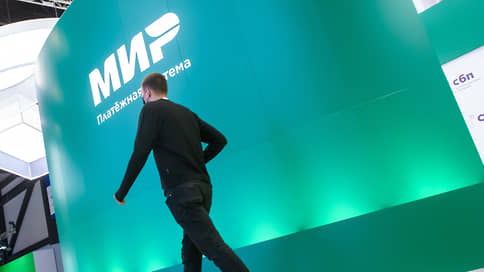Banks will save on commissions – Newspaper Kommersant No. 69 (7514) dated 04/20/2023
[ad_1]

In the second half of this year, the National Payment Card System (NSPK) intends to launch a new service designed for banks with a large issue of cards and an acquiring network. It will allow you to get significant savings when customers pay for purchases using Mir Pay. Experts believe that the new service was developed at the request of the largest banks, but they doubt that it will accelerate the promotion of Mir Pay on the market.
The national payment card system is going to offer banks a new service from July 1 — detokenization of their transactions made using Mir Pay in their own network. “Kommersant” got acquainted with these proposals and tariffs sent to banks. The bottom line is that when paying in the usual way – with a card or a sticker – the acquiring bank immediately recognizes its card and can carry out authorization: determine whether the account has the amount necessary to make a purchase. As a result, such a transaction does not go to the payment system; accordingly, the bank does not pay NSPK fees for it. With a tokenized transaction, the data on the issuing bank and the acquirer are encrypted, respectively, the acquirer in any case sends it to the NSPK for authorization.
For authorization, the payment system takes from the bank that issued the card, from 10 kopecks. up to 1 rub. per transaction, depending on the amount of the purchase and the type of card. When connecting the detokenization service, NSPK offers banks to pay for all on-us transactions made using Mir Pay at a reduced commission. As indicated in the NSPK tariffs, with the number of transactions up to 2 million per week, the bank will pay 10 kopecks. per operation, with 2-6 million pieces per week – 5 kopecks. for the operation, and for everything that exceeds 6 million pieces – 1 kopeck.
According to the Central Bank, in 2022, the average check paid by card exceeded 800 rubles, and the bank pays from 40–60 kopecks for such a transaction. depending on the type of card. At the same time, more than 1 billion transactions per week were processed through banks to pay for purchases with cards. According to the Bank of Russia, at the beginning of 2023, more than 40% of both the issue volume and transactions were accounted for by Mir cards, the number of which exceeded 180 million.
According to experts, the new service may be of interest primarily to banks with a large issue volume and a wide acquiring network. The head of the board of the Financial Innovations Association, Roman Prokhorov, believes that this is the result of the requirements of the largest banks, which do not want to pay for unnecessary services. Dmitry Vishnyakov, an independent expert in the payment card market, notes that international payment systems also acted in this way, based on the declaration of the volume of on-us transactions from member banks. “Tokenization allows you to increase the security of transactions, and there is a fee for this, but if the bank does not want such a service, then it should have a choice, which, most likely, will also have to pay,” he points out.
VTB believes that the service will be in demand, since the turnover on Pay-services in 2023 exceeds the average values of the previous year. So, in the bank, the average monthly turnover on Pay in 2023 amounted to 10.7 billion rubles, the average number of transactions was 15.9 million. -Mir Pay payment, which became available in the Tinkoff Kassa Internet acquiring service.
However, another expert on the payment market, Andrey Chirkov, the author of the CardReview TG channel, suggests that the meaning of the change in the pricing of operations with tokenized cards is to encourage players with a large share of traffic on their cards in their network to reduce their priority in promoting their own payment cards. services, and use Mir Pay more actively.
“First of all, I think it is about the active promotion of SberPay by Sberbank, but other major players began to follow its example,” he points out. Sberbank did not respond to Kommersant’s request. At the same time, according to Roman Prokhorov, the new service will not have a significant impact on the growth of Mir Pay usage.
However, as NSPK explained, the service for detokenizing the traffic of intrabank transactions “is not mandatory for banks participating in the Mir payment system.” Connection to the service will be carried out individually, “depending on how technological and business processes are arranged in a particular bank, and may require improvements on the part of the participants.”
[ad_2]
Source link





